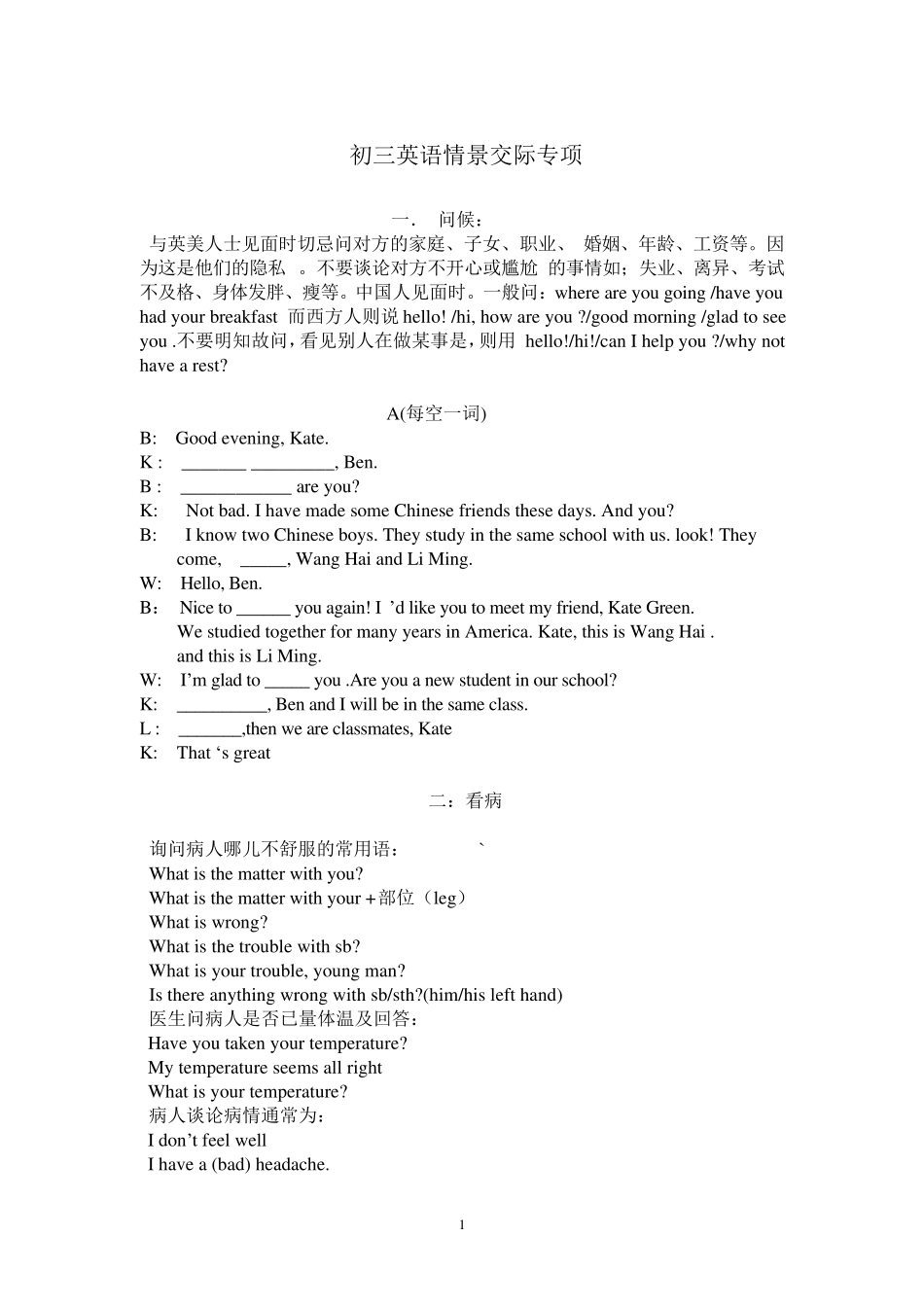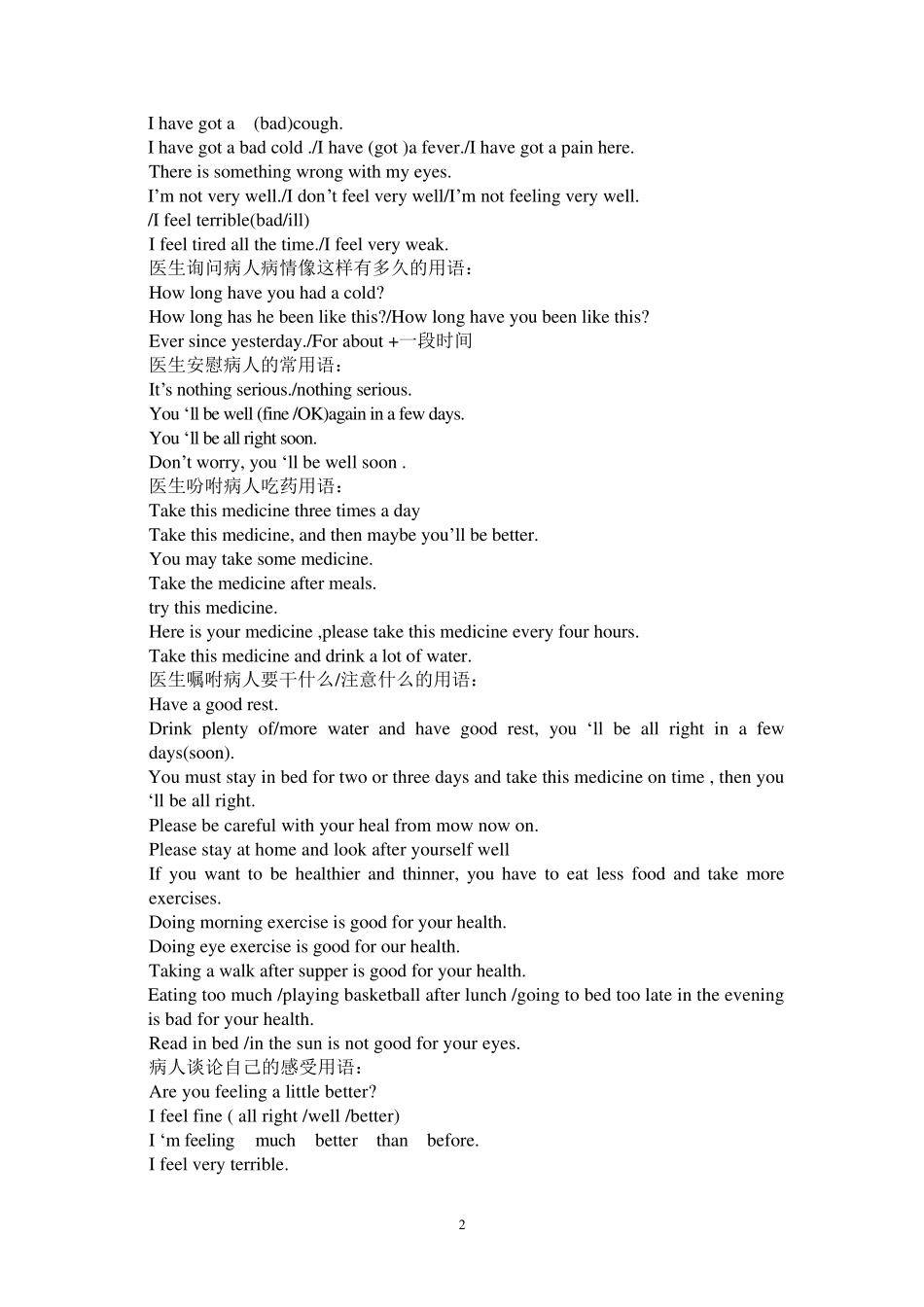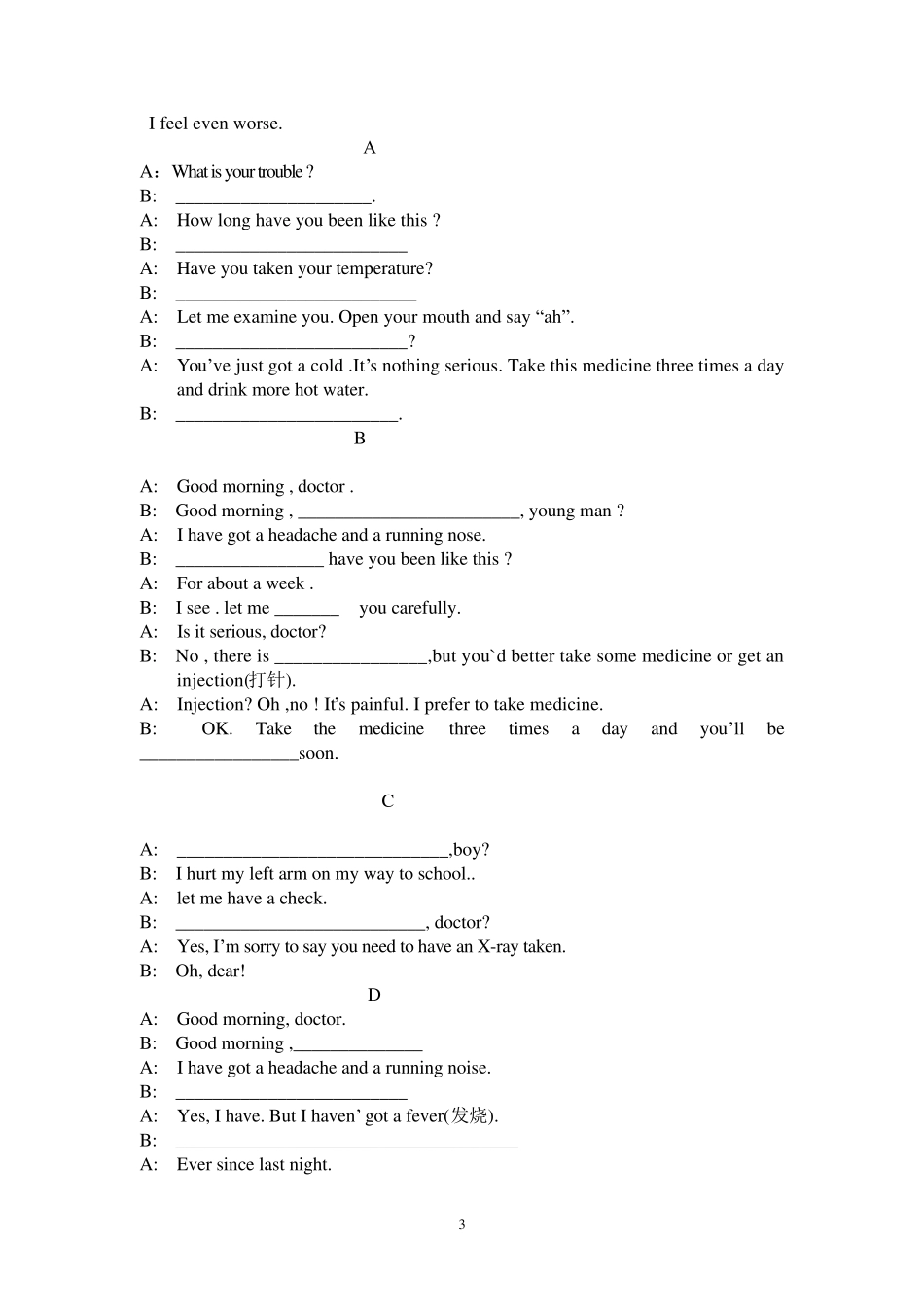1 初三英语情景交际专项 一. 问候: 与英美人士见面时切忌问对方的家庭、子女、职业、 婚姻、年龄、工资等。因为这是他们的隐私 。不要谈论对方不开心或尴尬 的事情如;失业、离异、考试不及格、身体发胖、瘦等。中国人见面时。一般问:where are you going /have you had your breakfast 而西方人则说 hello! /hi, how are you ?/good morning /glad to see you .不要明知故问,看见别人在做某事是,则用 hello!/hi!/can I help you ?/why not have a rest? A(每空一词) B: Good evening, Kate. K : _______ _________, Ben. B : ____________ are you? K: Not bad. I have made some Chinese friends these days. And you? B: I know two Chinese boys. They study in the same school with us. look! They come, _____, Wang Hai and Li Ming. W: Hello, Ben. B: Nice to ______ you again! I ’ d like you to meet my friend, Kate Green. We studied together for many years in America. Kate, this is Wang Hai . and this is Li Ming. W: I’ m glad to _____ you .Are you a new student in our school? K: __________, Ben and I will be in the same class. L : _______,then we are classmates, Kate K: That ‘ s great 二:看病 询问病人哪儿不舒服的常用语: ` What is the matter with you? What is the matter with your +部位(leg) What is wrong? What is the trouble with sb? What is your trouble, young man? Is there anything wrong with sb/sth?(him/his left hand) 医生问病人是否已量体温及回答: Have you taken your temperature? My temperature seems all right What is your temperature? 病人谈论病情通常为: I don’t feel well I have a (bad) headache. 2 I have got a (bad)cough. I have got a bad cold ./I have (got )a fever./I have got a pain here. There is something wrong with my eyes. I’ m not very well./I don’t feel very well/I’ m not feeling very well. /I feel terrible(bad/ill)...


